Senators Creigh Deeds and Bryce Reeves provided their perspectives on the 2012 legislative session and other current issues facing Virginians. Following the presentation, questions were taken from the audience. The program was moderated by SSV President Sue Liberman.
Standard Podcast [ 1:00:37 ]

Senator Creigh Deeds
Creigh Deeds represents the 25th Senate District, which includes the counties of Albemarle (part), Alleghany, Bath, Highland, Nelson, and Rockbridge, and the cities of Buena Vista, Covington, Charlottesville, and Lexington. He serves on three Senate standing committees: General Laws, Privileges and Elections, and Transportation.
Sen. Deeds’ public service career began in 1987 when he was elected to serve as the Commonwealth’s Attorney of Bath County. In 1991 he ran against an incumbent and won in the 18th District in the House of Delegates. After serving 10 years in the House, Sen. Deeds was elected to the Senate in a special election in 2001. Senator Deeds was the Democratic nominee for Attorney General in 2005 and for Governor in 2009.
Senator Deeds serves on the Board of Trustees of the Virginia Land Conservation Foundation, the Virginia Sesquicentennial for the American Civil War Commission, the Small Business Commission, and the State Water Commission. For his work on behalf of crime victims, he was awarded the Warren Stambaugh Award from Virginians United Against Crime. He also has received the Leadership in Public Policy Award from The Nature Conservancy, the Preservation Alliance of Virginia Delegate of the Year, and the Virginia Association for Parks Legislator of the Year. His legislative work and accomplishments have also been recognized by the Fairfax Coalition of Police, the Virginia Conference of the American Association of University Professors, and BikeWalk Virginia.
Senator Deeds attended Virginia’s public schools and graduated from Bath County High School in 1976. After completing undergraduate work at Concord College, he received his law degree from Wake Forest University in 1984. Senator Deeds lives in Bath County. He is an attorney in private practice and a visiting professor of law at Washington and Lee University. He has four grown children.
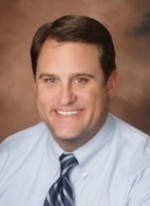
Senator Bryce Reeves
Bryce Reeves represents the 17th Virginia Senate District which includes all of Orange County and the City of Fredericksburg, and parts of Albemarle, Culpeper, Louisa and Spotsylvania Counties. He serves on four Senate standing committees: General Laws and Technology, Courts of Justice, Privileges and Elections, and Rehabilitation and Social Services.
Senator Reeves is President of Bryce Reeves Insurance and Financial Services, and President of Reeves Asset Management Group, a commercial real estate development firm with holdings in Stafford County, Virginia.
Senator Reeves joined the United States Army as an enlisted soldier but ultimately earned the rank of Captain and served as a United States Army Ranger, our country’s oldest elite special operations force. He worked for the Prince William County Police Vice/Narcotics Bureau as a front-line detective and served on a joint jurisdiction drug interdiction taskforce of Northern Virginia and Maryland.
Senator Reeves serves his community as a small group Bible study leader and deacon at Spotswood Baptist Church in Fredericksburg and is also an International Mission team leader that helped to spread humanitarian aid and resources to the less fortunate in Romania, the Republic of Moldova, and Jamaica.
He served as the regional chairman for Americans for Prosperity.
Senator Reeves holds a Master of Public Administration in Public Policy from George Mason University and Bachelor of Science from Texas A&M University in Industrial Education, a discipline focused on designing optimal manufacturing workspaces to maximize worker efficiency. He lives in Spotsylvania County, Virginia, with his wife Anne and their two children, Nicole and Jack.
Program Summary
Senators Creigh Deeds and Bryce Reeves provided their perspectives on the 2012 session of the General Assembly.
In their opening remarks, Senators Deeds and Reeves focused primarily on the effects of partisanship and on issues related to the budget. Senator Deeds said that he has served during 21 sessions of the General Assembly, and although he still gets a thrill to sit where Jefferson and others have, this session was the least productive he’s been through. It was off to a bad start and didn’t get any better given the 20/20 tie in the Senate and with members thrown off of committees—-something that has never happened before in the history of the General Assembly.
In the past there was power sharing. He is proud to be as nonpartisan as possible, but this session was a partisan nightmare. Instead of talking about jobs and job creation, time was spent on talking about the Personhood amendment, or forcing a mandated medical procedure on women. Virginia became the late-night talk show laughing stock. You’ve got to work together, yet the false majority could not pass a budget.
He sees the Virginia Retirement System (VRS) as a way to incentivize people to work in the public sector, and we need to keep the faith of those already in the system and protect their money. The unfunded liability for VRS has to be fixed, but the system has been changed in a pretty radical way—-new employees will pay more and get reduced benefits. These changes will help keep the faith but do not provide the incentive to work in the public sector. One positive coming out of the session is that a constitutional amendment will be on the ballot increasing the protection of property rights by limiting eminent domain. Senator Deeds summed up by saying that overall, the process was hurtful and ugly.
Senator Reeves opened by stating that he thought this session was productive in spite of his observation of one thing he has found about serving in the General Assembly—-that there is a thing like mold, and it is called “politics.” It attaches to everything you do. If we could get rid of some of the partisanship, we would be able to move a lot further than we are. Considering that over 2,800 bills were introduced this year, he sees that the Senate has by and large remained a pretty civil place. He has built some great relationships on both sides of the isles. We do a pretty good job to assure that safety nets are in place and Virginia remains number one in jobs and growth. As long as we can keep our budgets in balance, we’ll be in pretty good shape. He concluded his opening remarks by saying that the Senate functions very well, much better than the House.
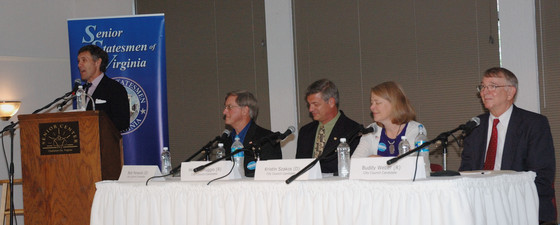
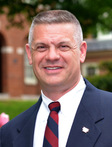 Mike Farruggio (R) was born in Brooklyn and raised in Freeport, NY, Mike served four years in the USAF. He began his law enforcement career with the NYPD relocating to Charlottesville in 1988 to join the Charlottesville Police Department. He has served in patrol, narcotics, community policing and traffic units and retired as the sergeant of the administrative bureau unit for training, policy, recruiting and accreditation. Mike lives in the Fry’s Spring Neighborhood with his wife and two children, who both attend City public schools. Mike has served on the Fry’s Spring Neighborhood Association, the Charlottesville Planning Commission, the Parks and Recreation Advisory Board as well as others.
Mike Farruggio (R) was born in Brooklyn and raised in Freeport, NY, Mike served four years in the USAF. He began his law enforcement career with the NYPD relocating to Charlottesville in 1988 to join the Charlottesville Police Department. He has served in patrol, narcotics, community policing and traffic units and retired as the sergeant of the administrative bureau unit for training, policy, recruiting and accreditation. Mike lives in the Fry’s Spring Neighborhood with his wife and two children, who both attend City public schools. Mike has served on the Fry’s Spring Neighborhood Association, the Charlottesville Planning Commission, the Parks and Recreation Advisory Board as well as others. Bob Fenwick (D) served in Vietnam as a combat commander with the 4th Infantry Division and graduated from Georgetown University with a BS in Physics. He has taken undergraduate and graduate courses in Civil Engineering and Construction Management at The George Washington University School of Engineering in Washington, D.C. Bob has been a small business owner for 40 years as a construction contractor. His two boys attended Charlottesville Public Schools and are currently serving in the US Army. Both boys have served in Afghanistan. Bob is running for office be-cause he believes the citizens of Charlottesville would benefit from having a voice of experience (business, technical and personal) in important decisions.
Bob Fenwick (D) served in Vietnam as a combat commander with the 4th Infantry Division and graduated from Georgetown University with a BS in Physics. He has taken undergraduate and graduate courses in Civil Engineering and Construction Management at The George Washington University School of Engineering in Washington, D.C. Bob has been a small business owner for 40 years as a construction contractor. His two boys attended Charlottesville Public Schools and are currently serving in the US Army. Both boys have served in Afghanistan. Bob is running for office be-cause he believes the citizens of Charlottesville would benefit from having a voice of experience (business, technical and personal) in important decisions.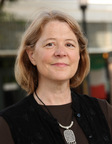 Kristin Szakos (D) is vice mayor of Charlottesville. Among innovations she has introduced are Our Town council meetings, Downtown Ambassadors, the Youth Council and paperless Council meetings. Kristin chairs the regional Jail Board, and sits on numerous boards and commissions. She is vice chair of the National Council on Youth, Education and Families. With a master’s degree in journalism from Northwestern University, Kristin has worked as a reporter, editor, grant writer, administrator and translations editor, and has co-authored two books on community organizing. She and her husband Joe have two daughters, Anna, 23, and Maria, 22, and have fostered four children.
Kristin Szakos (D) is vice mayor of Charlottesville. Among innovations she has introduced are Our Town council meetings, Downtown Ambassadors, the Youth Council and paperless Council meetings. Kristin chairs the regional Jail Board, and sits on numerous boards and commissions. She is vice chair of the National Council on Youth, Education and Families. With a master’s degree in journalism from Northwestern University, Kristin has worked as a reporter, editor, grant writer, administrator and translations editor, and has co-authored two books on community organizing. She and her husband Joe have two daughters, Anna, 23, and Maria, 22, and have fostered four children. Charles “Buddy” Weber (R) graduated from the University of Virginia in 1968 with a BS degree and a Commission in the United States Navy. He then served his country as a carrier-based fighter pilot for 27 years rising to the rank of Captain and returning to UVA in 1993 as a professor where he also attended Law School. After graduating, he has served the Charlottesville community as a court appointed criminal defense attorney advocating for many clients unable to afford critical legal services. Buddy has worked tirelessly to ensure equal justice for all regard-less of race or economic status.
Charles “Buddy” Weber (R) graduated from the University of Virginia in 1968 with a BS degree and a Commission in the United States Navy. He then served his country as a carrier-based fighter pilot for 27 years rising to the rank of Captain and returning to UVA in 1993 as a professor where he also attended Law School. After graduating, he has served the Charlottesville community as a court appointed criminal defense attorney advocating for many clients unable to afford critical legal services. Buddy has worked tirelessly to ensure equal justice for all regard-less of race or economic status.
 What does the Pony Express, Miss America, the Philadelphia Quakers Major League baseball team, Chicago’s Iroquois Theater and Tsing Kiang Pu, China, have in common with Charlottesville?
What does the Pony Express, Miss America, the Philadelphia Quakers Major League baseball team, Chicago’s Iroquois Theater and Tsing Kiang Pu, China, have in common with Charlottesville?  New malls are springing up everywhere in both the City of Charlottesville and Albemarle County. Chris Engel and Mark Graham spoke on the effect of these new developments on city and county planning.
New malls are springing up everywhere in both the City of Charlottesville and Albemarle County. Chris Engel and Mark Graham spoke on the effect of these new developments on city and county planning. Chris Engel, CEcD is the director of economic development for the City of Charlottesville. He has a bachelor’s degree in geography from Mary Washington College and a master’s degree in planning from Virginia Commonwealth University. He is also a graduate of the Economic Development Institute at the University of Oklahoma and is a member of the International Economic Development Council (IEDC) where he is a certified economic developer (CEcD). An active civic leader, his current leadership roles include: Chair of the Charlottesville Albemarle Convention and Visitors Bureau, and board positions with the Thomas Jefferson Partnership for Economic Development and Charlottesville Business Innovation Council. He has also been a Junior Achievement instructor and Comfort Zone Camp volunteer.
Chris Engel, CEcD is the director of economic development for the City of Charlottesville. He has a bachelor’s degree in geography from Mary Washington College and a master’s degree in planning from Virginia Commonwealth University. He is also a graduate of the Economic Development Institute at the University of Oklahoma and is a member of the International Economic Development Council (IEDC) where he is a certified economic developer (CEcD). An active civic leader, his current leadership roles include: Chair of the Charlottesville Albemarle Convention and Visitors Bureau, and board positions with the Thomas Jefferson Partnership for Economic Development and Charlottesville Business Innovation Council. He has also been a Junior Achievement instructor and Comfort Zone Camp volunteer.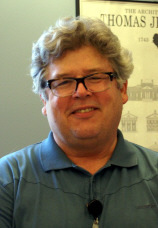 Mark B. Graham, P.E., has been the Director of Community Development for Albemarle County since that department was created in 2004 and was instrumental in making it a “one stop shop” for all development permitting and oversight by the County. He brings a somewhat unique set of skills to this position having worked in both the private and public sector, combined with a back ground that includes both an MBA and almost thirty years as a licensed professional engineer. As the Director of Community Development, Mark has been directly involved with most of the large projects approved in the County since 2000, including: Hollymead Town Center, Stonefield (Albemarle Place), Avon / 5th Street (Wegmans), Biscuit Run, Cascadia, Rivanna Village, and many others.
Mark B. Graham, P.E., has been the Director of Community Development for Albemarle County since that department was created in 2004 and was instrumental in making it a “one stop shop” for all development permitting and oversight by the County. He brings a somewhat unique set of skills to this position having worked in both the private and public sector, combined with a back ground that includes both an MBA and almost thirty years as a licensed professional engineer. As the Director of Community Development, Mark has been directly involved with most of the large projects approved in the County since 2000, including: Hollymead Town Center, Stonefield (Albemarle Place), Avon / 5th Street (Wegmans), Biscuit Run, Cascadia, Rivanna Village, and many others.






 James E. Haden, president and chief executive officer of
James E. Haden, president and chief executive officer of